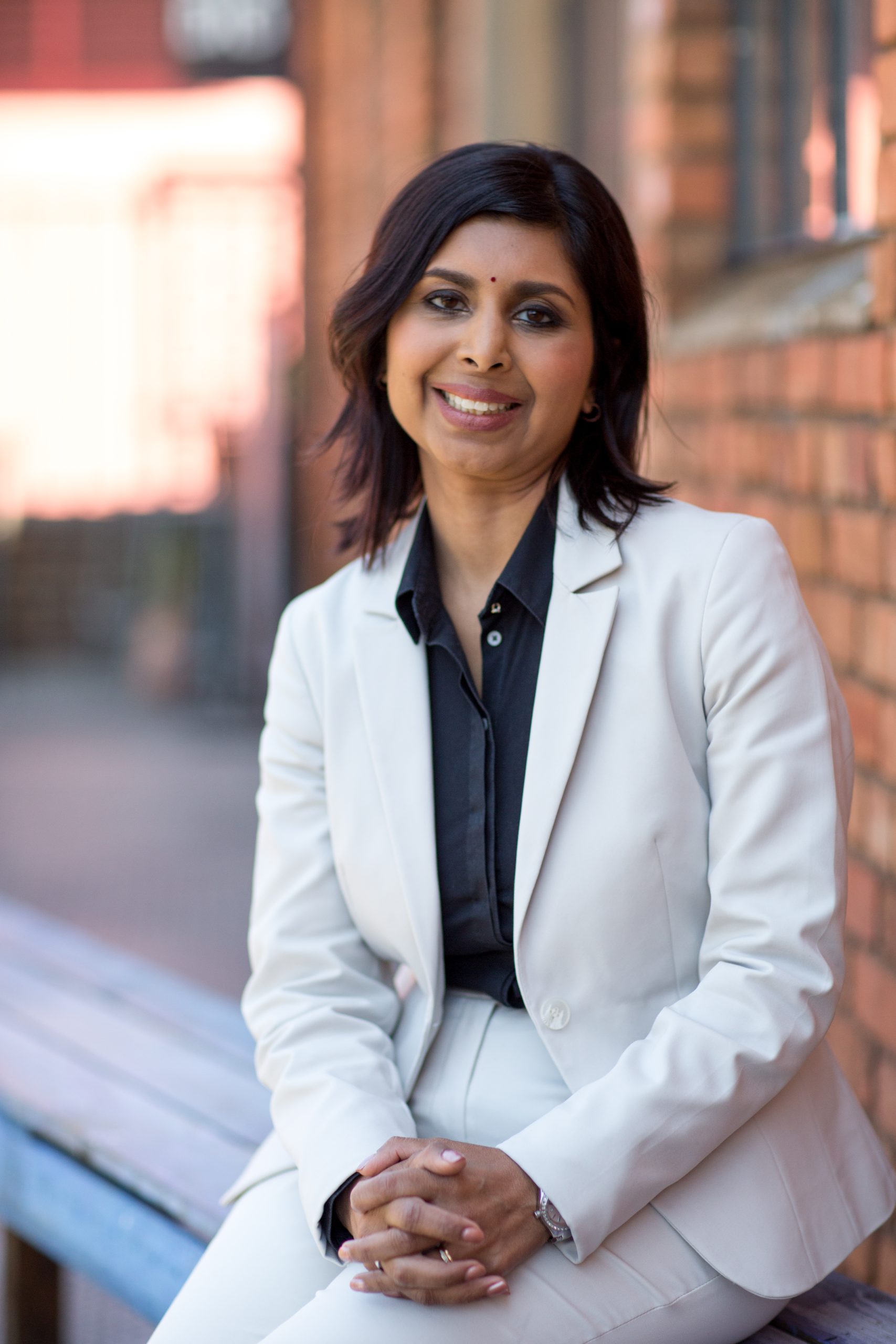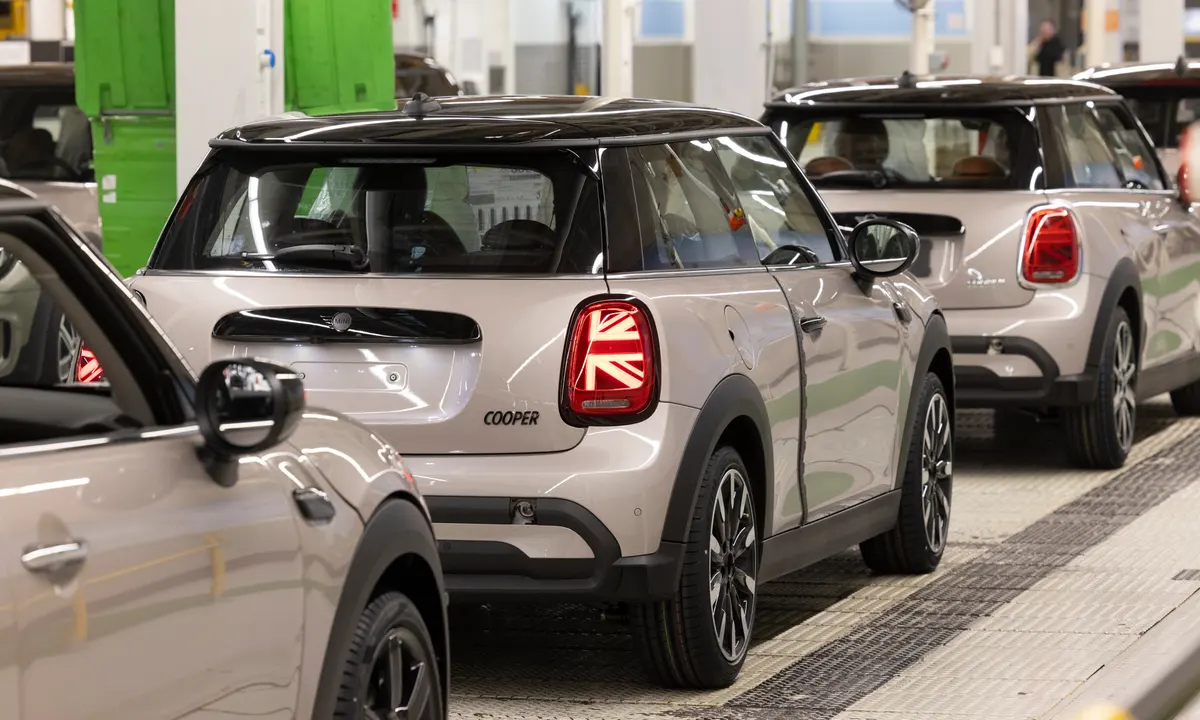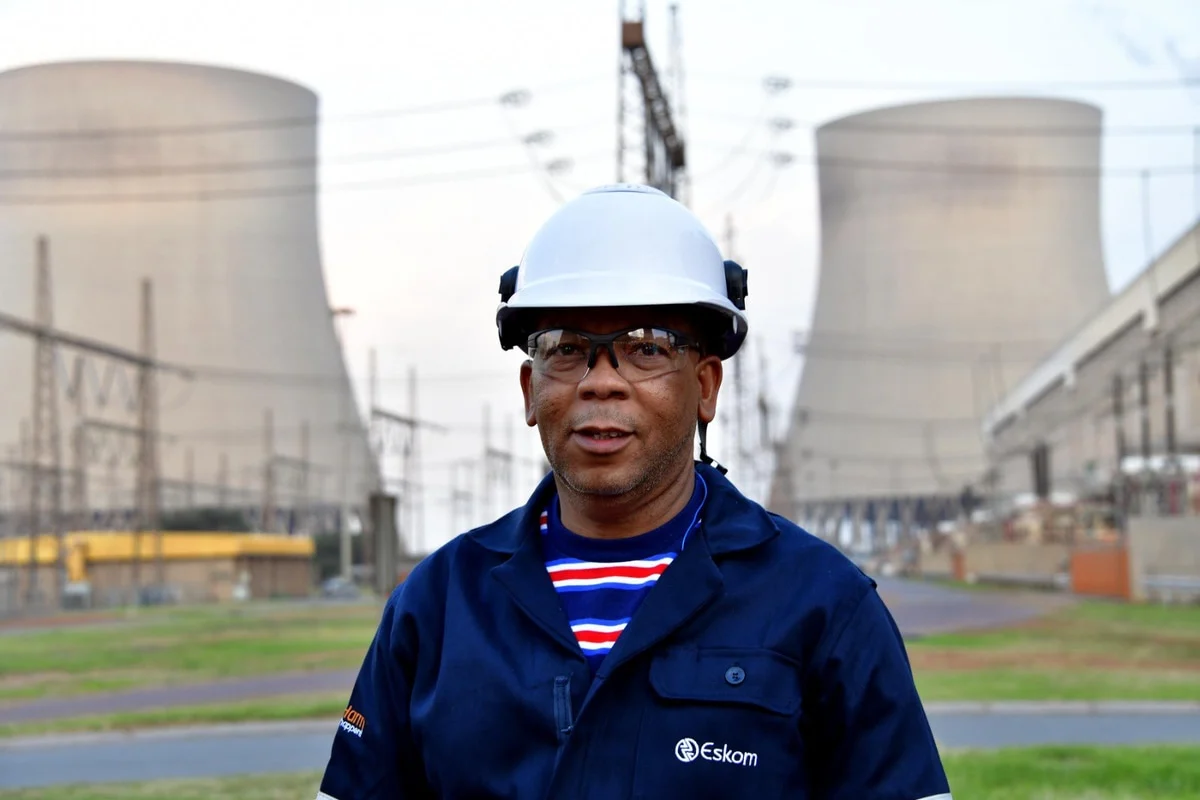Business
Key Taiwan Tech Firms Helping Huawei With China Chip Plants

- Critics slam Taiwan’s government for inadequate China curbs
- Taiwan has pledged to keep advanced tech from Chinese military
Several Taiwanese technology companies are helping Huawei Technologies Co. build infrastructure for an under-the-radar network of chip plants across southern China, an unusual collaboration that risks inflaming sentiment on a democratic island grappling with Beijing’s growing belligerence.
On a scorching summer afternoon in Shenzhen in late August, one vast, nearly-finished construction site established by a Huawei-backed firm buzzed with workers. The dozens of hard-hatted staffers who gravitated toward nearby street vendors couldn’t be told apart except for brightly hued safety vests that bore their employers’ names and official logos.
They included a unit of Taiwanese chip material reseller Topco Scientific Co. and a subsidiary of Taipei-based L&K Engineering Co., according to a Bloomberg News investigation. Across town at another Huawei-affiliated site, Bloomberg identified workers from a subsidiary of construction specialist United Integrated Services Co.
Meanwhile, Taiwan’s Cica-Huntek Chemical Technology Taiwan Co. said on its website that it had won contracts to build chemical supply systems for two Chinese chipmakers — Shenzhen Pensun Technology Co. and Pengxinwei IC Manufacturing Co., which was blacklisted by the US last year. Both companies have been identified as working with Huawei to build chip fabrication facilities. The company removed the online reference after Bloomberg News inquired about it.
The previously unreported Taiwanese presence in Huawei’s efforts risk triggering a backlash on an island that is preparing for polls next January, with the question of Taiwan’s rocky relationship with China likely the most pivotal issue.
At a time when China threatens Taiwan regularly with military action for even contemplating independence, it’s unusual that members of the island’s most important industry may be helping US-sanctioned Huawei develop semiconductors to effectively break an American blockade. Those sanctions were called into question after Huawei unveiled a smartphone in late August with an advanced made-in-China chip, spurring alarm in Washington and calls to completely cut off Huawei and its Shanghai-based chipmaker Semiconductor Manufacturing International Corp.
Cica-Huntek slid 2.6%, while Topco and United Integrated closed about 1.5% lower in Taipei on Tuesday. L&K Engineering finished largely unchanged.

Away from SMIC, Huawei is setting up its own shadow network of chipmakers with tens of billions of dollars in Chinese government support, according to trade group Semiconductor Industry Association. Huawei was said to be relying on a trio of little-known firms in Shenzhen — Pengxinwei, Pensun and SwaySure Technology Co. — to help it turn its chip designs into reality.
“The chips from these plants built with Taiwanese companies’ help could eventually be used on Chinese missiles aimed at Taiwan,” said Li Jung-Shian, professor of electrical engineering at Tainan, Taiwan-based National Cheng Kung University. “The government of Taiwanese President Tsai Ing-wen is not being serious about Taiwan’s defense if it does not tighten controls on local firms’ support for Huawei.”
It’s unclear whether the Taiwanese companies’ potential involvement violates American sanctions, in part because US curbs are designed to curtail the export of American-origin technology to Huawei rather than blocking all business relationships. Kevin Wolf, a partner at Akin Gump who specializes in trade policy, says it’s impossible to know whether these firms are violating US regulations without more detailed information. Because of the complexity of US sanctions against Huawei, it can be difficult to determine such violations without knowing exactly what technologies and equipment suppliers are using.
Wang Mei-hua, Taiwan’s minister of economic affairs, told reporters on Tuesday her agency will look into the four Taiwanese firms’ relations with Huawei. The ministry, responsible for export controls, said in an earlier statement in response to Bloomberg enquiries that it will reach out to the companies to “gain an understanding” of their activities in the region. The US Commerce Department declined to comment on the Huawei suppliers but referred Bloomberg News to previous statements where they said they were investigating the Chinese company’s reported chip advances.
“The ministry will also tell these firms to pay attention to US export control measures if the equipment they use are restricted by American rules,” the Taiwanese agency said in its statement.
Representatives for Huawei and L&K Engineering did not respond to multiple requests for comment.

A Topco representative confirmed that a Chinese subsidiary has an ongoing contract to handle waste water for Pengxinwei, or PXW, and said that environmental projects aren’t prohibited by US sanctions. Topco said it secured the contract before PXW’s blacklisting and doesn’t supply semiconductor equipment or material. Cica-Huntek won a contract for Pengxinwei’s chemical supply system in 2022, according to the firm’s now-deleted web page seen by Bloomberg News. A representative for the company declined to comment.
Additionally, a tank truck from specialty gases supplier Air Liquide SA was spotted leaving the PXW campus in August. The French company said it fully complies with regulations wherever it operates.
“With regards to PXW, Air Liquide China operates in full compliance with applicable regulations, supplying it only with products that are not subject to the U.S. Export Administration Regulations,” Air Liquide said in a statement.
The French finance ministry said it can’t comment on US regulations and hasn’t discussed Air Liquide’s ties with PXW with American officials.
United Integrated Services confirmed that a Chinese subsidiary has won a contract to help SwaySure renovate its interior and the unit has proceeded with the project. The Taiwanese firm said as the company and its Chinese subsidiary are in the construction business and the parent does not manufacture nor export wafer-related products or equipment, they do not violate export control rules.
“Since United Integrated Services was first founded, it has been complying with all relevant policies and regulations with all of its investments and businesses,” the company said in a statement. “The company values the rights of its investors and it prioritizes the protection of social order and public interest even more.”
Taiwanese voters will pick their president in 2024. They will choose between a ruling party determined to maintain Taiwan’s political independence, and an opposition that sees closer ties with China — the island’s biggest trading partner — as the only viable path.
Getting support from Taiwanese firms is significant for Huawei in terms of obtaining know-how. The suppliers seen aiding Huawei-affiliated chipmakers have played a critical role in supporting industry titans like Taiwan Semiconductor Manufacturing Co. and helped build an economy that makes nine of every 10 of the world’s most advanced chips.
Taipei has pledged to work with the US and other allies to prevent China’s military from acquiring state-of-the-art technology, as the island relies heavily on Washington for weapons and security. It will adopt measures to stop its tech from being used by the People’s Liberation Army, Deputy Minister of Economic Affairs C.C. Chen said last year. But he admitted it was “challenging” to implement export controls on China due to a “civil-military fusion” program that directs industrial innovation toward warfare.
At the heart of Huawei’s chip initiative is a giant factory with a coal-colored exterior that stood out in an urban area full of office buildings. Run by PXW, the startup got sanctioned by the US last December after Bloomberg News reported it’s backed by Huawei, one of at least three chip factories it’s bankrolling around its Shenzhen headquarters.
While the majority of workers present at these sites were mostly from local companies such as state-owned China State Construction Group Ltd., Taiwanese suppliers were spotted at all three locations. At SwaySure’s complex, United Integrated Services employees were toiling near a pole displaying the motto “winning the future with honesty and integrity.” Personnel from L&K Engineering Suzhou Co., the subsidiary, were also present at Pensun.
“These suppliers are sacrificing other Taiwanese people’s security to make a profit,” said Lin Tsung-nan, professor of electrical engineering at Taipei-based National Taiwan University.
© Bloomberg
Business
Legal Intelligence Firm redefines regulatory compliance with high-profile hire

In a world in constant flux, unpredictability has become the norm: socio-political shifts, the
increasing interconnectedness of multinational companies and ever-changing and expanding
body of laws and regulations means that compliance is becoming increasingly complex. As
such, governance, risk, and compliance (GRC) has become relevant now more than ever, and
artificial intelligence-driven technology is equipping organisations to make decisions in the face of uncertainty.
Months after acquiring big data software developer Pythagoria to intensify their data intelligence offering, legal-tech pioneer Afriwise has appointed GRC juggernaut Vishala Panday to champion product innovation and solutions around compliance to empower organisations operating in Africa to navigate complex legal and regulatory landscapes.
As the Head of Compliance Services, Panday’s expertise lies in the intersection of compliance,
technology, and organisational strategy. According to Panday, Afriwise is the next natural step in her career as it presents her with a significant opportunity to consolidate and utilise her diverse and multi-faceted experience to evolve GRC practices across African industries. “I was initially drawn to Afriwise’s client-centricity and commitment to cultivating the cutting edge of legal technology. Afriwise offers a powerful combination of proprietary legal and regulatory databases, AI, and expert analysis from top legal counsel and empowers African-operating businesses to make intuitive, meaningful decisions in real-time. I am excited to apply my depth of experience to develop tailor-made fit-for-purpose client solutions that add real and tangible value to business decision-making and risk mitigation.”
Panday believes that the value derived from structured data, artificial intelligence and
technology in the realm of regulatory compliance is intrinsic to business success. In order to
remain competitive, utilising technology to make quicker and better-informed decisions is a
business imperative. “Ethics and Compliance in business can err on the side of esoteric –
executive buy-in becomes less likely when the value is not explicit, tangible, or visible. My
approach to ethics and compliance is grounded in realism; GRC outcomes must be practical,
cost-effective, realistic to implement, and most of all, business-driven,” says Panday.
Many legal teams across the globe are becoming smaller and leaner, and conversely, the
regulatory landscape is ever-changing and growing. Most organisations do not have the luxury
of additional sets of hands to process reams of legal information in order to ultimately make
business decisions. Leveraging off of structured data and AI makes it possible for lean legal and compliance functions to evolve their roles into strategic business partners by delivering
practical, high-quality, and timely information to critical business stakeholders.
Prior to joining Afriwise, Panday enjoyed a decade-long tenure as Head of Ethics and Compliance at Barloworld Equipment, where she built an ethics and compliance function from scratch using a centre-led approach cutting across all of the African jurisdictions of operation. Within her first 12 months on the job, Panday rolled out an anti-corruption programme that included the management of the whistleblowing line, and investigations into ethical violations. This programme secured her the title of “Changemaker of the Year”, and she credits the ability to sink her teeth into a whole spectrum of ethical issues within a large corporate environment to her intuitive and practical approaches to compliance.
Panday’s non-traditional modus operandi is shaped by a culmination of understanding of
business best practice coupled with her foundational legal experience. “Early on in my career, I
learnt very quickly that assessing GRC through the lens of a traditional legal practitioner was
insufficient. Traditional legal practice means that the in-house counsel or legal advisor operates at arms-length of the core business environment, operating simply as a support functionary who generally advises reactively, rather than strategize with stakeholders proactively. In order to be effective in my role as a GRC functionary, I needed to become part of the business. To enhance her business and strategic acumen, Vishala went on to pursue a BCOM in Finance early on in her career, shortly after acquiring her LLB degree, and more recently, during 2022 completed an MPhil in International Business through the Gordon Institute of Business. It is this business acumen that provides me with a more practical approach to the application of ethics and compliance within corporate settings.
Steven De Backer, CEO and Founder of Afriwise says that Panday’s vision will pave the way
for even greater business success. “Vishala Panday is a highly regarded GRC professional and
it is a great privilege to have her on board to develop new and innovative products and help
evolve our compliance offering. Vishala is an individual of astute moral integrity with a wealth of knowledge; she will be a guiding force to not only transform how we do business but set a new standard for the industry at large. In many ways, she feels like Afriwise’s missing puzzle piece.”
CONTACT INFORMATION
Issued on behalf of Afriwise by:
Lauren Crooks
lauren@lockandkeyconsulting.co.za
+27 82 078 7199
ABOUT AFRIWISE
Leading provider of integrated legal and regulatory intelligence solutions in Africa
Afriwise is an award-winning legal intelligence platform, transforming and democratising access to legal and regulatory information across Africa and beyond. At Afriwise, we help organisations, whatever their size, advance their business in Africa and gain a competitive advantage by providing them with business, legal, and regulatory intelligence based on technology and human expertise.
Afriwise is the result of years of experience and trust building, through close
collaboration with firms across Africa, to give you easy and instant access to the expertise and
know-how you need about local markets on the continent. Our collaboration with over 150 law
firms on the continent is further testimony of our team’s deep links within Africa. By leveraging our unparalleled database, cutting-edge NLP technology, in-house expertise, and extensive network we help solve our clients’ most pressing legal and regulatory challenges.
Video:
Website: www.afriwise.com
Business
BMW and Jaguar used banned China parts – US probe

BMW, Jaguar Land Rover (JLR) and Volkswagen (VW) used parts made by a supplier on a list of firms banned over alleged links to Chinese forced labour, a US congressional report has said.
At least 8,000 BMW Mini Cooper cars were imported into the US with components from banned Chinese firm Sichuan Jingweida Technology Group (JWD), according to the report by Senate Finance Committee chairman Ron Wyden’s staff.
“Automakers’ self-policing is clearly not doing the job,” the Democrat Senator said.
Jaguar Land Rover told the BBC it “takes human rights and forced labour issues seriously and has an active ongoing programme of human rights protection and anti-slavery measures”.
BMW and VW did not immediately respond to requests for comment.
Mr Wyden also urged the US Customs and Border Protection agency to “supercharge enforcement and crack down on companies that fuel the shameful use of forced labour in China”.
The report added Jaguar Land Rover had imported spare parts which included components from JWD after the company was put on the banned list.
JLR said it has now identified and is destroying any stock it holds around the world that include this component.
In February, VW said thousands of its vehicles, including Porsches and Bentleys, had been held by authorities because they had a component in them that breached America’s anti-forced labour laws.
VW had voluntarily informed customs officials about the issue, the report said.
Congress passed the Uyghur Forced Labor Prevention Act (UFLPA) into law in 2021.
The legislation is intended to prevent the import of goods from China’s north-western Xinjiang region that are believed to have been made by people from the Uyghur minority group in forced labour conditions.
JWD was added to the UFLPA Entity List in December 2023, which means its products are presumed to be made with forced labour.
China has been accused of detaining more than one million Uyghurs in Xinjiang against their will over the past few years.
Authorities have denied all allegations of human rights abuses in Xinjiang.
“The so-called Uyghur Forced Labor Prevention Act by the US is not about forced labor but about creating unemployment. It does not protect human rights but, under the guise of human rights, harms the survival and employment rights of the people in Xinjiang,” Chinese Foreign Ministry spokesperson Wang Wenbin said.
“China strongly condemns and firmly opposes this. We will take measures to resolutely safeguard the legitimate rights and interests of Chinese enterprises.”
© BBC News
Business
Sony sees higher profit from image sensors, to conduct stock split

Sony Group (6758.T), said on Tuesday it sees operating profit growing 5% to 1.28 trillion yen ($8.2 billion) this business year with a boost coming from its image sensors.
Sony is a major supplier of image sensors for smartphones and that business is expected to book a 40% rise in operating profit on higher sales and lower costs.
The Japanese conglomerate said it would conduct a five-for-one stock split and buy back up to 2.46% of its shares worth 250 billion yen.
It sold 20.8 million PlayStation 5 units last year, narrowly missing its revised target of 21 million units issued in February following weaker-than-expected sales over the year-end shopping season.
Sony sees profits at its gaming business rising 7% in the current year due to smaller hardware losses as it sells fewer consoles, and higher sales from its PlayStation Plus subscription service.
Known as the inventor of the Walkman and the MiniDisc, Sony has transformed from an electronics manufacturer into an entertainment and technology juggernaut spanning movies, music and games and chips.
The Japanese tech conglomerate plans a partial spin-off of its financial unit with a listing in October 2025 in order to focus on its entertainment and chips units.
The gaming sector has been hit by a slowdown with Xbox maker Microsoft (MSFT.O), last week moving to shutter studios including Tokyo-based Tango Gameworks in the latest cost-cutting measures.
Sony said in February it would lay off 900 workers at its gaming business and shutter a London studio.
Sony Pictures last week sent a letter expressing interest in acquiring Paramount (PARA.O), with private equity firm Apollo (APO.N), Reuters reported.
A deal would create a formidable Hollywood studio with a share of around 20% of the North American box office.
In the year ended March, Sony recorded a 7% fall in operating profit, due to lower profits at its life insurance business. The result was in line with estimates.
© Reuters
Business
Eskom’s energy availability factor has breached the 70% as R53 million spent on diesel last week to power Open Cycle Gas Turbines

Electricity Minister Kgosientsho Ramokgopa stated on Monday that Eskom’s Energy Availability Factor (EAF) has breached the 70%, while just over R53.4 million was spent on burning diesel to power the Open Cycle Gas Turbines (OCGT) last week.
Eskom has consistently defended it’s use of OCTG’s, saying it was only being used during morning and evening peaks to meet high electricity demand when it is necessary.
The power utility says South Africa is currently in a load shedding free environment, not because they are burning diesel to keep the lights on, but because of their extensive maintenance programme and success of their Generation Operational Recovery Plan, which was initiated in March last year.
According to Ramokgopa, who spoke during a media briefing on Monday, the EAF has breached the 70% mark and is currently tracking at 70.78%. This is the first time the EAF has breached 70% since August 2021.
For the month-to-date, the EAF is at 64,34% and year-to-date (YTD) the EAF has reached 59,92%.
Load shedding has been suspended for 47 consecutive days during which time the OCGT usage has been lower than the same time as last year. Ramokgopa said between May 5 to 11, OCGTs were in use for just four days, with just over R53 million spent on diesel on those four days.
On Monday, R23.5 million was spent on diesel to power the OCTGs, R11.9 million was spent on Tuesday and Wednesday, and R6.4 million was spent on Thursday.
Eskom said that South Africa has been without load shedding due to the utility having sufficient generation capacity from a more reliable generation fleet and has denied reports in the Mail and Guardian that it was overusing its diesel-burning OCGTs.
In April this year, Eskom spent R1.1 billion on OCGTs, producing 167.8 Gigawatt hours (GWh).
This was about 60% less than April 2023, when a staggering R3.1 billion was spent to produce 470.22GWh, the utility said.
Ramokgopa said that the OCGT load factor for April 2024 decreased significantly to 6.8% compared to last year’s figure of 19.13%.
Eskom said that its diesel budget from May to June was R5.8 billion, and only R1.16bn had been spent as of May 9, 2024, or 19.7% of the total budget.
Generation performance
The minister said that consistently good performance has come from the Kusile, Lethabo, Majuba, Matla and Medupi power stations, and these stations have helped contribute to the EAF trend.
Eskom noted that Medupi and Lethabo, specifically, have achieved a YTD EAF greater than 70% (peaking at 87.6%,) by the end of March 2024.
In terms of stations showing an improved trajectory, the minister said that the EAF has been assisted by improving performance from the Arnot, Camden, Hendrina and Grootvlei power plants.
He said suspension of load shedding is driven by an improvement in coal fleet performance, supported by solar during the day.
On Friday, Eskom said in a statement that unplanned outages have reduced by 4,400MW since April 26, 2024, due to extensive maintenance.
“Eskom’s outlook for the winter period of 2024 states it will continue to strategically utilise its peaking stations, including OCGTs – these will be dispatched during morning and evening peaks to meet high electricity demand, when necessary,” Eskom said.
‘End of load shedding is in sight’
On Monday, President Cyril Ramaphosa praised the Energy Action Plan and said that the end to load shedding is in sight.
“It is too early to say that load shedding has been brought to an end. However, the sustained improvement in the performance of Eskom’s power stations, as well as the new generation capacity we have added to our energy system gives us hope that the end of load shedding is in sight,” Ramaphosa said in his weekly newsletter.
“A renewed focus by Eskom on maintenance and the return to service of several units is now showing results. Losses due to unplanned outages have reduced by nine percent between April 2023 and March 2024, adding the equivalent of 4,400MW of capacity to our national grid,” he added.
“Better maintained and more reliable power stations have increased the country’s EAF. The EAF has been above 60% since April, compared to 53% over the same period last year.”
Ramaphosa also praised Eskom’s leadership team and highlighted the work done by the power station general managers and their teams.
“The leadership, management and staff of Eskom, particularly the power station general managers and their teams, are to be commended for their efforts. The work of the National Energy Crisis Committee, which coordinates the response across government, has also been vital. The strong partnership with business and the support of other social partners has enabled the deployment of valuable resources and expertise,” he concluded.
© IOL










You must be logged in to post a comment Login